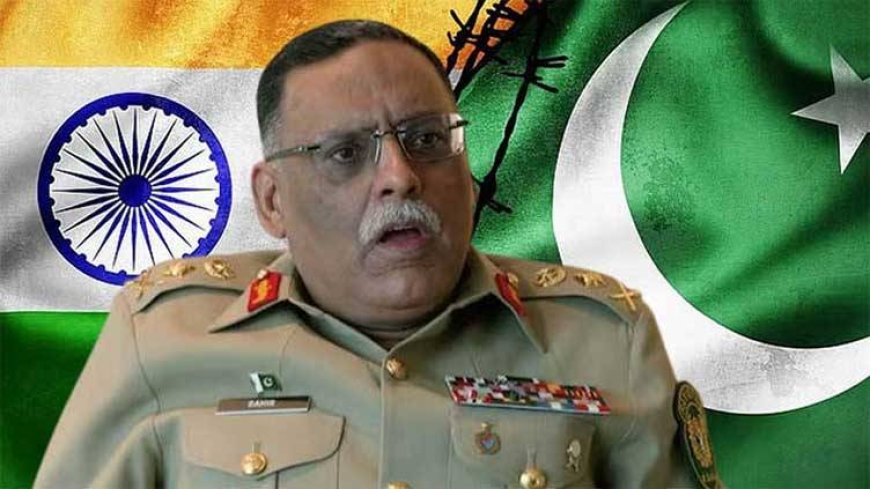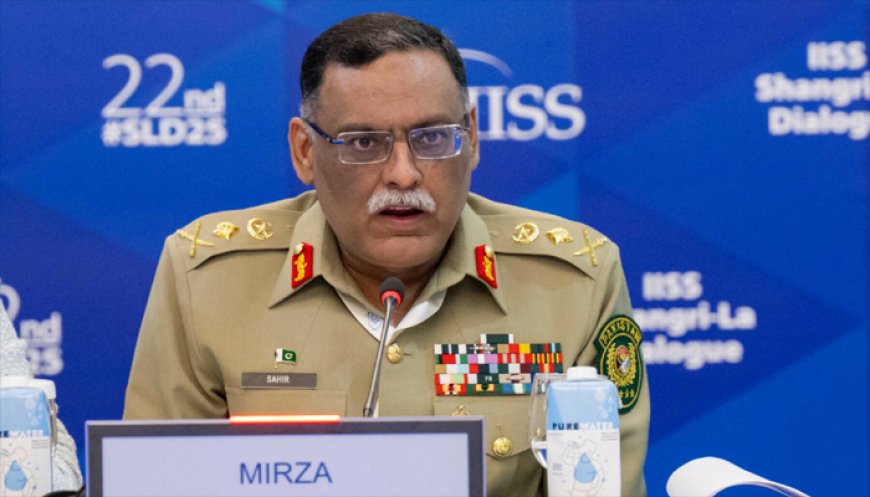Pakistan Used Own Resources in 96-Hour India Clash
In a powerful statement highlighting Pakistan’s defense capabilities, General Sahir Shamshad Mirza, Chairman of the Joint Chiefs of Staff Committee, revealed that Pakistan managed a recent 96-hour conflict with India using its resources, without any support from foreign allies.

In a powerful statement highlighting Pakistan’s defense capabilities, General Sahir Shamshad Mirza, Chairman of the Joint Chiefs of Staff Committee, revealed that Pakistan managed a recent 96-hour conflict with India using its resources, without any support from foreign allies.
This revelation reflects the growing strength and self-sufficiency of Pakistan’s armed forces and has gained national attention due to its strategic and political implications.
-
Pakistan relied solely on indigenous and pre-purchased resources during the conflict.
-
No military support was received from foreign countries, not even real-time intel or logistics.
-
The clash highlights the need for international conflict resolution mechanisms.
-
Urban centers were involved, indicating a dangerous escalation compared to past border skirmishes.
-
India blamed Pakistan for a terror attack in Kashmir, which Islamabad strongly denied.
In a detailed interview, General Mirza explained that the conflict lasted approximately four days and began after tensions escalated following a violent attack in Indian-administered Kashmir. India pointed fingers at Pakistan-based elements — a charge vehemently denied by the Pakistani government.
Shortly after:
-
India reportedly conducted airstrikes on Pakistani territory, targeting what it claimed were terror camps.
-
In response, Pakistan launched Operation Bunyan-un-Marsoos, striking back at Indian military targets.
-
Both countries prepared for further escalation, but diplomacy and third-party interventions eventually defused the situation.
“We fought the entire conflict with our own capabilities,”
— General Sahir Shamshad Mirza
-
All equipment and defense systems used were either locally developed or purchased earlier.
-
There was no involvement of China or any other nation in providing real-time support.
-
This was a matter of national pride, showcasing how far Pakistan’s defense infrastructure has come.
In today’s geopolitical landscape, many nations depend on alliances and foreign military support during times of conflict. Pakistan’s choice — or necessity — to stand alone sends several messages:
-
Military independence: Pakistan is capable of defending its sovereignty without aid.
-
Strategic maturity: Pakistan understands the diplomatic consequences of foreign involvement.
-
Regional confidence: Boosts morale within the country and signals readiness to adversaries.
One of the most alarming aspects of this conflict, according to General Mirza, was the shift from border clashes to attacks on urban areas. In past skirmishes, such as those in Kargil or Balakot, the conflict was largely restricted to remote or disputed regions.
However, this time:
-
Cities were on high alert, with citizens bracing for possible missile strikes or air raids.
-
Critical infrastructure, such as power grids and communication systems, was under threat.
-
The fear among civilians was more widespread than in past confrontations.

General Mirza raised serious concerns over the lack of formal conflict-resolution mechanisms between India and Pakistan.
Currently:
-
The only existing line of communication is a hotline between the Directors General of Military Operations (DGMOs).
-
There’s no dedicated diplomatic or crisis management framework to prevent misunderstandings or rapid escalations.
-
The international community, especially the United States, played a role in urging restraint, but such interventions are becoming rarer, according to Mirza.
During the conflict, Indian media claimed that China had supported Pakistan militarily, fueling speculation and misinformation.
General Mirza dismissed these rumors:
-
No Chinese military presence or support was involved.
-
The information war is now as critical as physical combat, with media narratives shaping public perception.
-
Pakistan wants the truth to remain clear: It stood alone, and it stood strong.
Despite the military success, General Mirza stressed the importance of peace and diplomacy.
He warned:
-
Future conflicts might not remain limited to four days or specific regions.
-
Civilian casualties and infrastructure damage could increase drastically if cities continue to be targeted.
-
A structured peace dialogue is urgently needed, but political will from both sides is missing.
For every Pakistani citizen, especially the youth, this message from the country's top military leader is important:
-
It highlights self-reliance in an era when most countries depend on alliances.
-
It shows the progress made in defense technology, manufacturing, and strategy.
-
It calls for awareness, unity, and resilience in times of national emergencies.
-
It urges the need for fact-checking and media literacy during times of conflict.
This story has stirred a massive reaction on social media and national news platforms:
-
Defense analysts are hailing this as a turning point in Pakistan’s military evolution.
-
Citizens expressed pride and concern — pride in the military’s competence, and concern over the potential for escalation.
General Mirza’s candid remarks about Pakistan’s capability to fight a major regional power without foreign support will likely be remembered as a defining moment in the country’s modern defense narrative.
While military strength is vital, long-term peace will depend on diplomacy, regional cooperation, and mutual trust. The 96-hour conflict stands as both a testament to resilience and a warning sign for the future.

 Ateeq Ur Rehman
Ateeq Ur Rehman